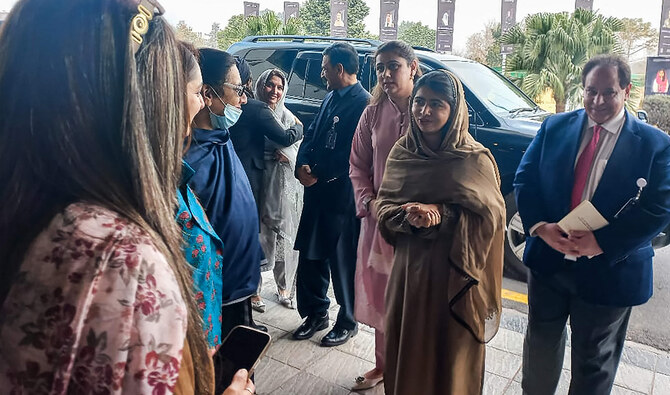ISLAMABAD: Pakistan's Finance Minister Ishaq Dar tabled a supplementary finance bill in parliament on Wednesday to collect additional taxes to revive a stalled $6.5 billion loan program with the International Monetary Fund (IMF) to stave off an economic crisis.
Dar introduced the bill first in the National Assembly and later, in the Senate. Pakistan has been struggling to revive a $1.1 billion loan program with the IMF, which has imposed tough conditionalities on the South Asian nation already struggling with surging inflation and macroeconomic problems.
The reserves of Pakistan's central bank have declined to $2.9 billion, according to official figures. Expert warn the country can face a balance-of-payments crisis.
"The purpose of this bill is to give legislative effect to the taxation proposals of the federal government to stabilise economy in aftermath of recent floods," a copy of the bill, seen by Arab News, reads.
The finance minister said the legislation would enable Pakistan to collect additional taxes of Rs170 billion to meet one of the IMF's demands. The government has already jacked up tariffs on electricity and gas to meet the international lender's conditions.
"This legislation will help us overcome fiscal and current account deficits," the minister said, adding that the Prime Minister Shehbaz Sharif-led coalition government has taken "tough decisions" to save the state from defaulting on its debts.
He announced the government's move to increase the general sales tax (GST) rate from 17 percent to 18 percent. Dar said Pakistan has also enhanced federal excise duty (FED) on cigarettes and sugary drinks to generate additional revenues.
The minister said tax on luxury items has also been increased from 17 percent to 25 percent.
The bill has also proposed that the FED on business and first-class air tickets be increased by up to 50 percent and a 10 percent withholding adjustable advance income tax on marriages in wedding halls. It has also called for the FED on cement to be increased from Rs1.5 per kilogram to Rs2 per kilogram.
Dar said the government was not levying any additional taxes on essential goods such as wheat, rice, meat, milk, and eggs. "We are trying to protect the common people and ensuring that there would be a minimum burden on them," he said.
He assured the parliament that the prime minister and his cabinet would also be implementing austerity measures in the face of tough economic conditions, adding that Sharif would take the public into confidence on these measures soon.
The IMF delegation was in Pakistan from January 31 to February 9 to discuss the revival of the program but departed without signing a staff-level agreement with Islamabad. The government is now holding virtual talks with the Washington-based lender, hoping to reach an agreement by the end of this week.
The finance bill would become law after it passes from the National Assembly and is sent to the president for approval, which the government expects would be done by tomorrow, Thursday.




















